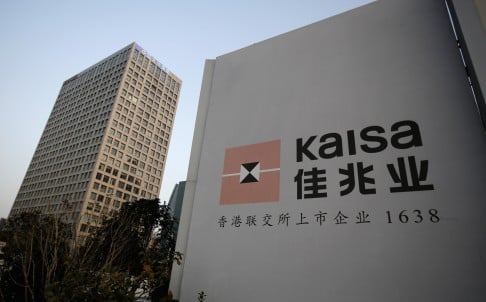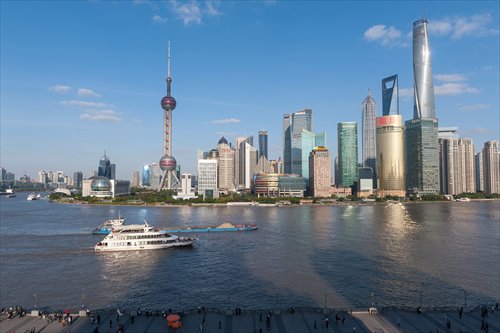
–
Alibaba Group should next week collect the big money from its NYSE IPO. But, Seattle’s Amazon owns the future of China’s $400 billion online shopping industry. Amazon’s China business is better in just about every crucial respect: customer service, delivery, product quality even price when compared to Alibaba’s towering Taobao business. Hand it to Jeff Bezos. While few have been watching, he is building in China what looks to me to be a better, more long-term sustainable business than Alibaba’s Jack Ma.
Amazon’s China business fits a familiar pattern. The company is often mocked for keeping too much secret, investing too much and earning too little. In China, far away from the Wall Street spotlight, Amazon has invested hugely, with a long-term aim perhaps to overtake Alibaba and become a dominant online retailer in the country. But, it has zero interest in letting its shareholders, competitors, or the world at large know what it’s doing in China. Open the company’s most recent SEC 10-K filing and there are three passing mentions of China, and nothing about the size of its business there, the strategy.
Amazon shareholders may well wake up one day and suddenly find Bezos has built for them one of the most valuable online businesses in the world’s largest e-commerce market, the only one not owned and managed by a Chinese corporation. No rickety and risky VIE structure, unlike Alibaba and virtually all the other Chinese online companies quoted in the US. (Read damning report by US Congress investigators on these Chinese VIE companies here. )
Jeff Bezos has been in the online shopping business from its genesis, in 1994. He first got serious in China ten years later, by buying a small online shopping business called Joyo in 2004. Taobao was founded by Jack Ma a year earlier. Within three years Taobao had demolished eBay’s then-lucrative China online auction business, by making it free for sellers to list their products on Taobao. Buyers and sellers both pay Taobao zero commission. It earns most of its money from advertising. EBay China closed its doors in 2006. Since then, Alibaba has grown from about $170mn in revenues to over $6 billion in 2013. Approximately three out of every four dollars spent online shopping in China goes through Alibaba’s hands. Overall, online shopping transaction value is on track to exceed $1 trillion by the end of this decade.

The champagne and baijiu will flow at Alibaba next week. Meantime, Bezos will continue executing on his plan, begun in earnest around 2012, to first gain on Taobao, and one day outduel it in China. How? To buy from Amazon China is to see Bezos’s mind at work. He has clearly assessed Taobao’s pivotal weaknesses, and is targeting them with precision.
Taobao has done phenomenally well. But, it is much the same business today as a decade ago. It is mainly a raucous collection of individual sellers where counterfeit, used-sold-as-new or substandard goods are rife. Everything is ad hoc. Sellers can appear and disappear overnight. They charge whatever they like to ship you your merchandise. Try to return things and it can be anything from complicated to impossible. Most payments are processed by Alipay, a business with similar ownership to Alibaba, but not fully consolidated as part of the IPO. Alipay tries to act like an impartial escrow service between Chinese buyers and sellers who too often seem to be out to try to cheat one another.
Taobao is a product of its time, a China where getting stuff cheap, of whatever origin, authenticity and quality, was paramount. It’s also been a great way to create an army of small entrepreneurs in China, eight million in total, with their own shops selling merchandise to over 200 million different individual customers on Taobao. But, Chinese are much richer and more discriminating today than ten years ago. They are getting richer by the day. The larger trends all point in Amazon’s favor.
Here’s why. When you buy things on Amazon China, you mainly purchase direct from Amazon, not from individual sellers. As in the US, Amazon China sells a full range of merchandise not just books. While it has far fewer items for sale than Taobao, it does many things that Taobao cannot. First, it has its own nationwide delivery service. Where I am in Shenzhen, I get delivery the next morning from a guy in an Amazon shirt with his electric motorcycle parked on the sidewalk in front of my building. You can either pay online by credit card, or pay the delivery guy in cash, COD. Delivery is free and reliable. Parcels are professionally packaged in Amazon boxes and generally arrive in mint condition. It’s a limousine service compared to Taobao.
Stuff ordered on Taobao can take days to arrive, and is sent using any of a group of different independently-owned parcel delivery companies. They don’t accept returns, or cash, and often in my experience as a Taobao customer for the last five years the parcels arrive pretty badly roughed up. The Taobao sellers do their own packaging, sometimes good and sometimes no, usually with boxes rescued from the trash, then call whichever parcel company offers them the cheapest rate. The seller usually takes a mark-up since delivery on Taobao is generally not included.
Amazon China is putting its brand and reputation behind everything it sells. This provides a quality guarantee that no individual seller on Taobao can match. I’ve also found over the course of the last year that prices for similar items are often now cheaper on Amazon than on Taobao. How so? For one thing, unlike the Taobao army, Amazon can use its buying power to extract lower prices and better payment terms from its suppliers. Taobao has a subsidiary business called TMall, where major brands directly sell their products. Here at least there should be no worries about the quality and authenticity of what’s being sold. But since each brand manages its own store on TMall, the prices are often higher than on Amazon China. Delivery is also less efficient, in my experience.
What does Taobao still do better than Amazon China? Its website seems a bit easier for Chinese to navigate than Amazon China’s, which looks and acts a lot like the main Amazon website designed and managed in Seattle.
As Bezos’s shareholders know well and occasionally grumble about, he loves spending money on warehouses, shipping technology and other expensive infrastructure. The China business is a marvel of its kind, a kind of “Bezosian” tour de force. The scale and complexity of what Amazon China are doing is formidable. Bezos started and prospered originally with a no inventory business model, letting outside wholesalers hold and so finance the inventory of books he was selling online.
In China, Amazon must stock huge inventories to get products delivered to customers overnight. Where these facilities are and how much Amazon has spent is beyond knowing. Anything I buy on Amazon China — most recently three books, an electronic garlic-mincer and some ceramic carving knives — is delivered to me next day, within about 15 hours of when I ordered it. In a country China’s size, where moving things around long-distance by truck as UPS and Fedex do in the US is difficult and expensive, Amazon has apparently invested in a large nationwide distributed network of warehouses to hold all this inventory. Whether these are owned by Amazon or third parties is also not disclosed. But, it all works smoothly. I get what I order quickly and efficiently, direct from Amazon’s own liveried delivery team, at prices Taobao can’t match.
Every delivered package drives home the message how much faster, cheaper and more reliable Amazon China is compared to Taobao. Try us once, Bezos seems to be saying here in China, and you’ll try us again.
 Can Amazon China be making any money here? My guess is No, that the current operation in China is a big money sink. How big? China’s other big online shopping business, JD.com, which went public earlier this year and has a business model more like Amazon China than Alibaba’s, is losing money every quarter. (Nonetheless, it has a current market cap of $40bn.)
Can Amazon China be making any money here? My guess is No, that the current operation in China is a big money sink. How big? China’s other big online shopping business, JD.com, which went public earlier this year and has a business model more like Amazon China than Alibaba’s, is losing money every quarter. (Nonetheless, it has a current market cap of $40bn.)
Alibaba, by contrast, is making money hand-over-fist, Rmb8 billion ($1.3bn) in net income the last quarter of 2013. To get noticed, those eight million individual Taobao sellers, as well as TMall brands, need to pay more and more to Taobao for ads and preferential placement.
Longer term, though, the Taobao ad-supported model looks ill-adapted to where China is headed. Traditional store retailers in China are getting slaughtered by online competitors. Among those online players, it seems likely business will shift to those that can guarantee quality, authenticity, easy product returns and efficient next-day-delivery. That describes Amazon.
One reason it’s crazy to bet against Bezos is he has shown no compunction about using shareholder money to build a business that can only start to make real money in ten maybe fifteen years. Jack Ma has no such luxury, especially now that Alibaba will be quoted on the NYSE. Alibaba is not likely to attract the kind of patient shareholders drawn to Amazon.
This is perhaps one reason why Ma has been out spending a huge pile of Alibaba money buying into all kinds of businesses to tack onto Alibaba. These include US car service Lyft, messaging business Tango, and all sorts of domestic Chinese businesses, including a big slice of China’s Twitter, Weibo, the digital mapping company AutoNavi, 16.5% of China’s YouTube knockoff, NYSE-quoted Youku and a Hong Kong-quoted film studio that seems to have been cooking its books. He also bought control of a professional soccer team in China, hoping to upgrade the much-maligned image of the domestic game. Add it up and it looks like even Ma isn’t fully convinced Taobao will be able to keep spinning money for years to come.
His most successful recent venture begun last year is an online money management business called Yuebao that pays Chinese savers about 4% on deposits, compared to the less than 0.5% offered by local Chinese banks. As of early September, it had Rmb574 billion, nearly $100 billion, under management. This business is not included in the Alibaba entity going public in New York. That points up another worrying aspect of Jack Ma’s business style. He has shown a proclivity to put some of the more valuable assets into vehicles that only he, rather than the shareholder-owned company, controls. Yahoo! and Japan’s SoftBank have some bitter direct experience with this.
How far can Bezos go in China? After all, he doesn’t speak Chinese and doesn’t seem to visit China all that often. Can a kid from a Miami high school really build a better China business than scrappy Hangzhou-native Jack Ma? One pointer is that the most successful traditional retailers are now mainly foreign-owned and managed. Domestic retailers couldn’t adapt to this new era of rampant low-price online competition. But, Zara, H&M and Sephora are all thriving here. They, too, focused on details often overlooked here, like good customer service, no-questions-asked return policy, competitive prices and great merchandising.
Alibaba’s market cap next week, after its biggest-of-all-time IPO, may temporarily overtake Amazon’s, at $160 billion. But, make no mistake, Amazon will likely prove the more valuable business over time, both in China and globally.





 Â
 


















